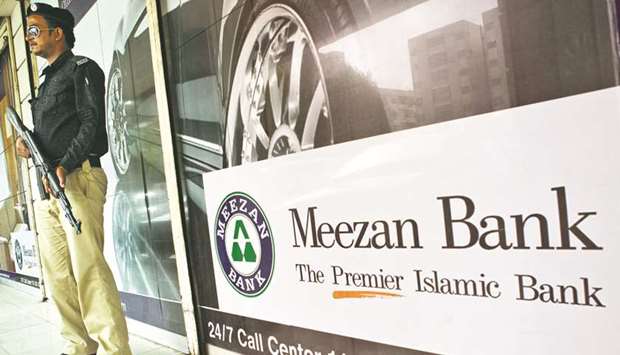The central bank of Pakistan has given the go-ahead to Islamic banks to offer cheaper refinancing to three priority areas including small and medium enterprises (SMEs), agriculture and renewable energy.
Islamic banks have been demanding the central bank for a long time to allow them to open cheaper refinancing windows to capitalise on opportunities and search for avenues to park their excessive liquidity.
Conventional banks have already been providing refinancing to the three major sectors for around three to four years.
“The State Bank of Pakistan (SBP) has issued three Shariah-Compliant Refinance Schemes that are expected to provide a level-playing field to the Islamic banking industry,” the central bank said.
“The addition of Shariah-compliant financing facility for renewable energy, financing facility for storage of agricultural produce and refinance facility for modernisation of SMEs will meet a long-awaited demand of the industry, especially for the agriculture and SME sectors,” it said.
“Islamic banks may find an opportunity of financing such projects to the tune of Rs10-20bn in the ongoing year,” Meezan Bank Head of Product Development and Shariah Compliance Senior Executive Vice President Ahmed Ali Siddiqui said. “This will help park part of the excessive liquidity of Islamic banks.”
Siddiqui pointed out that conventional banks had been offering the cheaper financing facility for the last three to four years, adding Islamic banks did not get the opportunity.
He revealed that Islamic banks had been managing excess liquidity of average around Rs400bn for the last two to three years because of less Islamic investment avenues. Customers had been demanding such financing facility too, he said.
Earlier, Islamic banks were parking excessive liquidity in Sukuk (Islamic bonds). However, the government has not launched new Sukuk for the past around two years.
Two Sukuk worth Rs234bn have matured since December 2018. Another one of over Rs100bn will mature on March 30. “With this, the investment of Islamic banks in Sukuk will come down to Rs71bn compared to over Rs500bn in the past,” he said.
Siddiqui urged the authorities to float Sukuk and increase government borrowing from Islamic banks in order to provide them a level-playing field.
“The government in July 2018 approved an increase in its borrowing to 30% of total financing from Islamic banks,” he said. “Time has come to implement the plan.”
The central bank added that the export refinance facility and long-term financing facility for the exporters were also available to the Islamic banking industry.
The SBP said modaraba-based facilities would provide long-term cheaper liquidity to the end-users.
The Islamic financing facility for renewable energy will be available in two categories. These include prospective sponsors desirous of setting up renewable energy projects with capacity ranging between one and 50 megawatts and consumers willing to install a facility using renewable energy source for electricity generation ranging between four kilowatts and one megawatt.
The Islamic financing facility for the storage of agricultural produce will be available for setting up warehouses and cold storages. The refinance facility for the modernisation of SMEs will be available for the purchase of new imported/local plant and machinery.

A security guard stands outside a Meezan Bank branch in Karachi (file). Pakistan’s central bank has given the go-ahead to Islamic banks to offer cheaper refinancing to priority areas including SMEs, agriculture and renewable energy.
